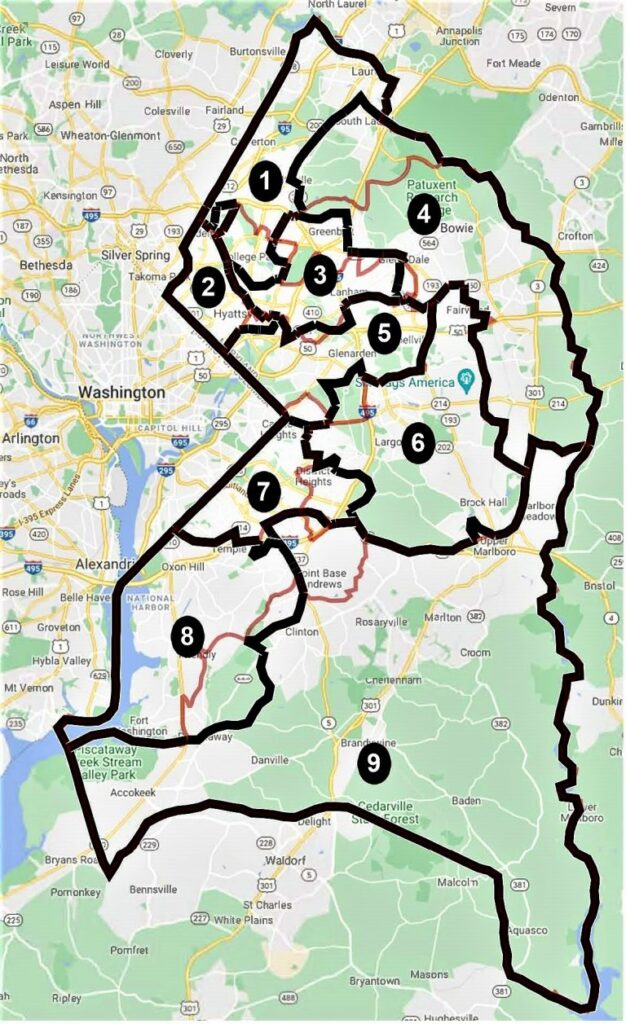It all boils down to grammar. That is the heart of the argument currently being made in the Maryland District Court of Appeals. Does the 2012 charter amendment actually give the Council permission to substitute its own Map via a Resolution? Or does the way the Charter amendment was written mean it only applies to the Commission’s Map?
Article 3, Section 305 of the PGCounty code says:
“… If the Council passes no other law changing the proposal, then the plan, as submitted, shall become law, as of the last day of November, as an act of the Council, subject to Sections 320 and 321 of this Charter. Such law shall be adopted by resolution of the County Council upon notice and public hearing.”
That last sentence, “Such law shall be adopted by resolution of the County Council upon notice and public hearing,” was added to the Charter in 2012 after a vote by the citizens for Ballot Question A. This was added to the ballot to get the citizenry to approve of the change as the Council had written it in the bill; CB-0055-2012.
On January 28, 2022, four citizens of PG County won a court case against the council by claiming that passing the Davis redistricting map via a resolution was illegal. Their interpretation of Section 305 is that the phrase “such law” applies to the Commission’s plan, and that if the Council wants to replace the Commission’s plan they must first pass a law doing so. Judge Snoddy of the PG County Circuit Court agreed. He wrote that “a resolution, while having the effect of a law, is not a substitute for a law…” Judge Snoddy ruled that the County Council had to throw out the Davis map and immediately revert to the Commission map.
Many citizens and the affected candidates agreed with the court’s ruling. There were op-eds written praising the judge’s ruling, and candidates like Olsen, Davis-Brown, and Oriadha all praised the ruling. Tamara Davis-Brown, who narrowly lost our District 9 to Sydney Harrison, said the court order “corrects the Council’s flawed decision-making.”
The Council, however, disagreed and filed an appeal. The Council’s lawyer, Rajesh Kumar, has claimed that the court ignored the will of the people, based on the passage of the 2012 Ballot Question. The Council says the “such law” phrase means they can pass any redistricting plan they want via a Resolution – which, unlike a law, is exempt from all legislative safeguards, including executive vetoes. Council Chair Hawkins (D-At Large) said the Council followed the Charter with the 2012 amendment, and Councilman Derek L. Davis (D-District 6) is confident the Council will win the appeal.
The Appeals case will be heard on March 4, 2022.
